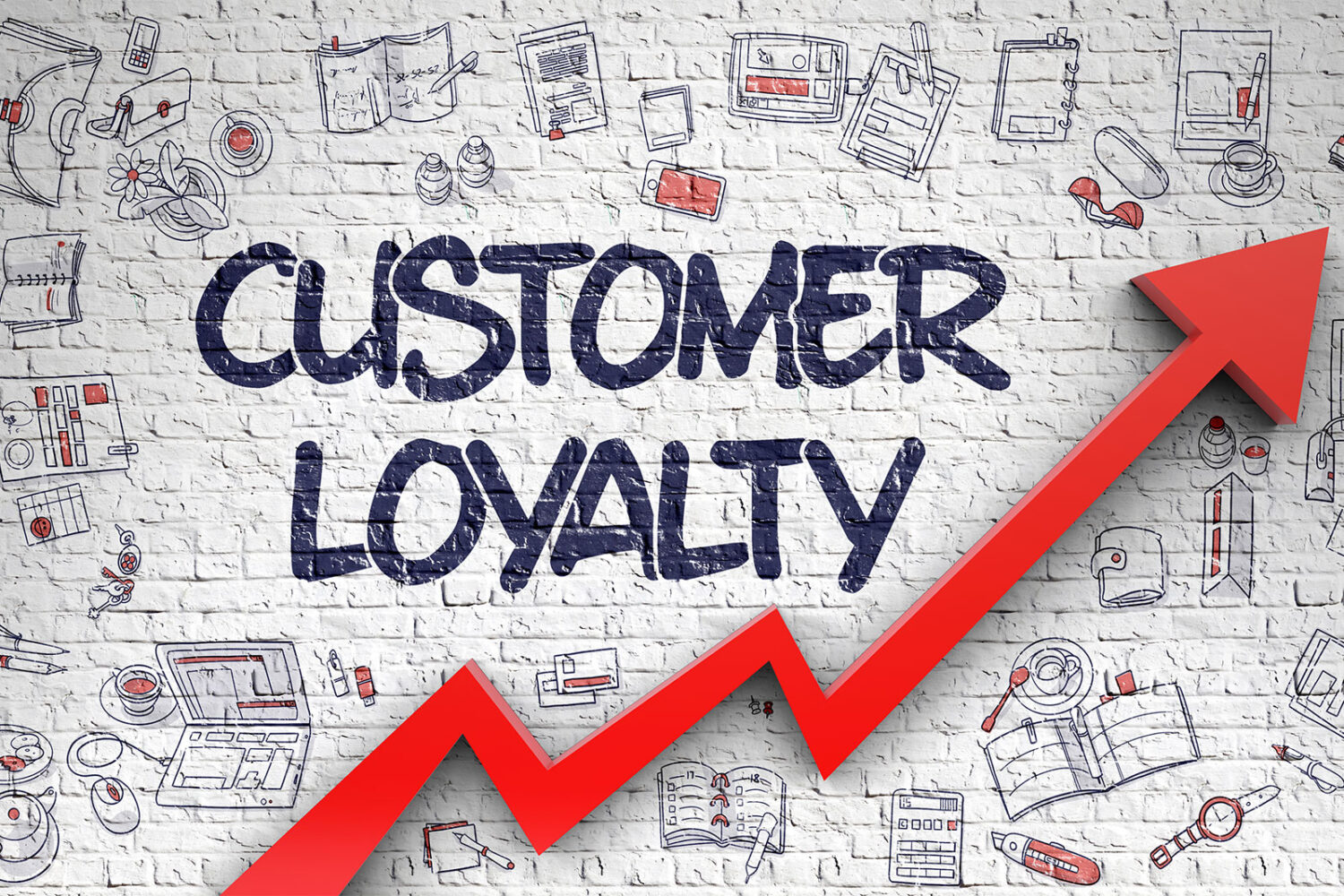Customers have never been so disloyal. That’s not a knock on them – just an observation that’s supported by plenty of data. With so many different options, customers are no longer married to brands. Instead, they shop around each time they buy. The question is, how can you circumvent this practice and get your clients to stay with you over time?
What is Customer Loyalty?
Customer loyalty is an individual’s act of choosing one company and its products/services over those of its competitors. Loyal customers trust the brands they do business with and will generally stick with them regardless of other factors in the marketplace.
Benefits of customer loyalty (for brands) include:

- Higher CLV. You could argue that it costs just as much to acquire a one-time customer as it does to acquire a long-time customer. Sure, you’ll spend to nurture a loyal client, but the acquisition is the most expensive event. That means customers who are loyal obviously have a much higher customer lifetime value (CLV). This leads to greater profitability.
- Less price sensitive. Customers who are loyal won’t be swayed nearly as much by sales, discounts, or other offers offered by competitors. They’re way more focused on the trust they have in the business and the quality of the products they’ve grown accustomed to. To them, price is just one small factor.
- More forgiving. Mistakes happen in business. Whether it’s a careless social media post that sparks outrage in the media, or a faulty product that has to be recalled, every business experiences issues. Loyal customers are much more forgiving. They’ll reach back into their memory bank and recall all of the positive things you’ve done and contrast them against this “one” issue. In other words, they’re much more forgiving.
- Advocacy. A casual one-time customer cares about the product, but doesn’t really have much to do with your brand. A loyal customer is a brand advocate. They talk about your brand and its products on social media, at parties, and whenever they get the chance.
Unfortunately, customer loyalty is waning across all markets and industries. Companies once relied on the famous 80/20 rule, which stated that 80 percent of all sales came from the 20 percent most loyal customers. Today, that’s no longer the case. In some organizations, as little as 50 percent of revenue comes from loyal customers who’ve purchased in the past.
This declining loyalty trend is only getting worse. Some say the pandemic has even exacerbated underlying issues. In a survey conducted during the height of the pandemic, customers were asked to explain their loyalty in times of crisis. An astonishing 85 percent of customers said brand names didn’t matter to them, while 69 percent were willing to purchase a different brand if their preferred brand wasn’t available.
Tips for Fostering Loyalty With Clients

The interesting thing about loyalty is that it works the same across all major industries and companies. The product or service doesn’t really matter – these methods are just rooted in basic human psychology. With that being said, here are a few tips you can use:
- Offer Discounts
As previously mentioned, loyal customers are not price sensitive. However, that doesn’t mean they don’t care about price. (Just that they won’t abandon you because another company has a lower price.)
One way to show clients you care is to offer them discounts as a “thank you” for their loyalty. These are not discounts that you advertise publicly. They’re discounts that you only send to existing clients. (And make sure you let them know this!)
- Express Gratitude
Gratitude is a powerful emotion. It makes both the giver and the receiver feel better. The problem is that most businesses take their customers for granted. You can flip the script and become the business that constantly expresses gratitude.
There are tons of unique ways to show a customer that you appreciate their business, but it’s hard to beat the good old-fashioned thank you note. According to PrintingCenterUSA, which works with a lot of businesses, greeting cards are the way to go. You can print a photo, logo, or themed design on the front and then write a brief note on the inside. It doesn’t have to be anything super fancy, but it should be handwritten and personalized.

- Ask for (and Implement) Feedback
Show customers you care and gather important insights in one smooth process by soliciting feedback. You can do this in the form of customer satisfaction (CSAT) surveys, online reviews, social media surveys, focus groups, or any number of other methods.
Once you collect feedback, make sure you use it. Find the biggest trends and make changes to your product, marketing, or business model based on what the largest number of people want to see.
- Go Above and Beyond With Customer Service
When you look at most companies that operate in a saturated space, you’ll notice that they tend to have very similar products. Quality, options, pricing – they don’t differ that much. It’s customer service that’s usually the real difference maker. If you can go above and beyond with your customer service, you’ll win.
Research shows that nearly half of all customers will switch to a competing brand after just a single bad service experience. On top of that, 9 in 10 customers believe a “quick response” is very important when choosing which businesses to purchase from. The message is clear: Be responsive or miss out.
In addition to being responsive, you need to go above and beyond the call of duty. Don’t just fix problems – make them better! In other words, if someone’s order is lost during transit, don’t just help them place a new order. Give them a 50 percent discount and offer overnight shipping so it gets there the next day.
Set Your Business Up for Success

Loyalty is the ultimate measurement of success. With so many different options for customers to choose from, no client is forced to stick around. If they want to jump ship, they can. That makes this metric all the more worthwhile to track.
When loyalty goes up, you know you’re doing something right. Make loyalty the focus, and you’ll always reach your goals (no matter how lofty they are).
 Comeau Computing Tech Magazine 2024
Comeau Computing Tech Magazine 2024




